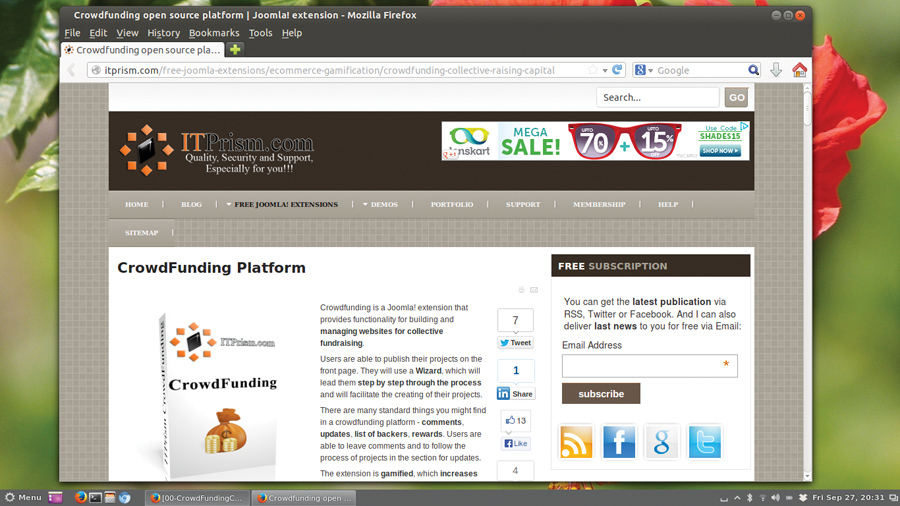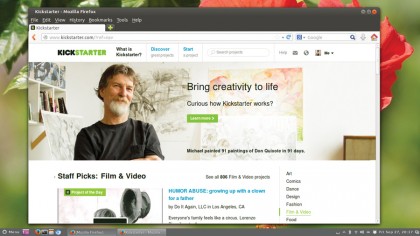The power of crowdfunding: how to make the most of it
Get funding with minimum hassle

What's the common link between a customisable smartwatch, an Android-based gaming console and an open source blogging platform and an open world survival videogame?
Besides all them being hugely popular in their respective genres, these compelling hardware and software projects all saw the light of day only thanks to small monetary contributions supplied by complete strangers.
The idea of crowdfunding or reaching out to individual people to raise money isn't new. What is new is the way the money is being raised. Thanks to the internet and social media, it's easier to find and connect with people who share your passions. This leads to more effective and efficient ways of reaching the right people who are willing to open their wallets to fund your projects.
Crowdfunding is nothing short of an economic revolution. According to research firm Massolution, in 2012 individuals on crowdfunding platforms raised $2.7 billion and successfully funded more than 1 million campaigns. By the end of 2013, the firm expects the average Joe investor to take this figure to a whopping $5.1 billion.
But while crowdfunding allows you to swim in money, you shouldn't just dive right in. Don't let the super successful campaigns fool you. Harnessing the power of the crowd is an involved process. There's more to raising money than just putting up your story, offering freebies and waiting for the money to roll into your bank account.
Before you launch a crowdfunding campaign, there are a lot of things you should know. A successful crowdfunding project requires all the attributes of a social and a business campaign. You have to supplement your big idea with research and marketing strategies. In this feature we'll give you the ins and outs of crowdfunding and highlight its advantages over traditional avenues of raising funds.
We'll also share advice from people who have been there and done it to help you plan your project; all the way through launch to successful funding and delivery, while avoiding the potential pitfalls. You'll also learn about the various crowdfunding platforms out there, so that you can make an informed decision when you are selecting the one best suited for your campaign.
Get daily insight, inspiration and deals in your inbox
Sign up for breaking news, reviews, opinion, top tech deals, and more.
Crowd sourcing 101
A crash course in cashing in.

While contributing to someone's crowdsourcing campaign doesn't require much more than a mouse click, setting up your own is a lot more work. Keep these statistics in mind if you're thinking of launching a campaign without doing your homework: only under 50% of all projects on Kickstarter have been successful and 10% of projects that are launched have never received a single pledge!
But once you get the hang of crowdfunding, you can turn those stats on their head. As you'll see it's the best methodology for raising capital and finding a marketplace, whether you are trying to mass produce an innovative hardware device or hack together a piece of software.
What is crowdfunding?
Crowdfunding is a subset of the much broader concept of crowdsourcing, which has come to mean a lot of things, but is the process of connecting with a large group of people via the internet to tap their knowledge, expertise, time or other resources.
Crowdfunding is specifically about raising the cold cash; it's the collective cooperation of people who network and pool their money together to form the financial backing for a project. The crowdfund is an individual or a group that comes forward with a plan for a project they wish to fund, and then look to a group of people coming together to actually provide the money to support the development and actual delivery of the project.
Essentially, crowdfunding is using the internet's access to the masses to raise capital by connecting people who have the talent and ideas with people that would be interested in those ideas and have the funds to invest. There are some key characteristics unique to crowdfunding projects that help distinguish it from other avenues of raising funds and collaborating on projects.
With almost two decades of writing and reporting on Linux, Mayank Sharma would like everyone to think he’s TechRadar Pro’s expert on the topic. Of course, he’s just as interested in other computing topics, particularly cybersecurity, cloud, containers, and coding.
